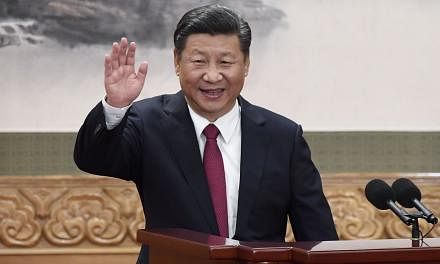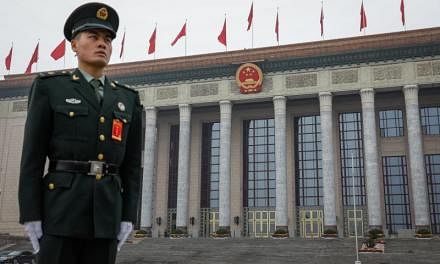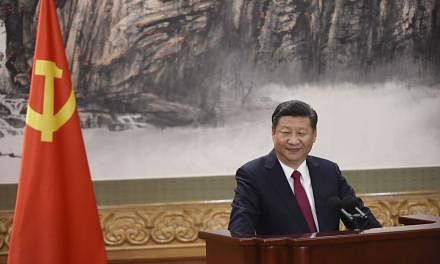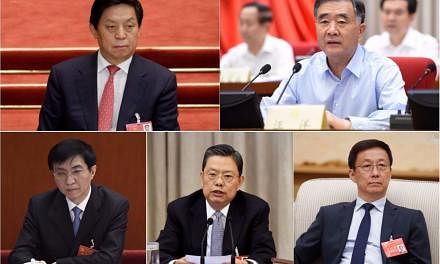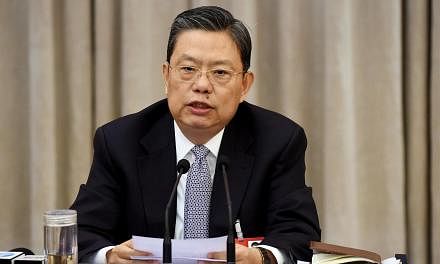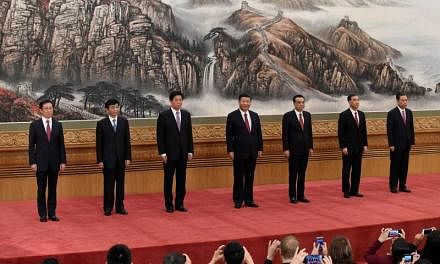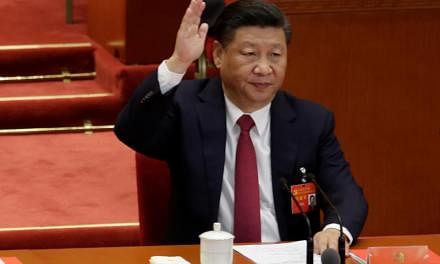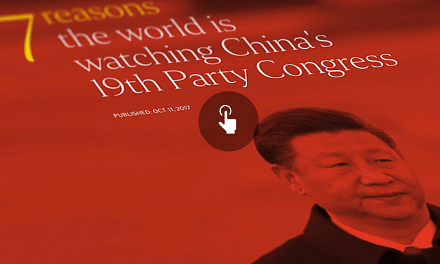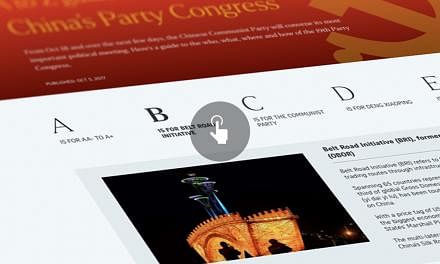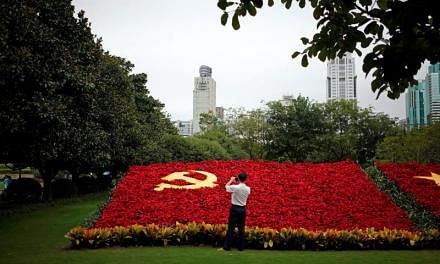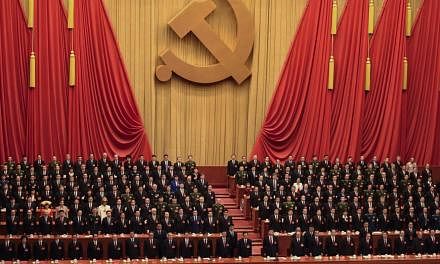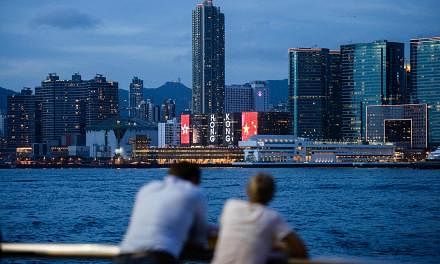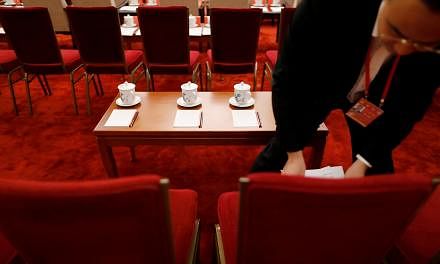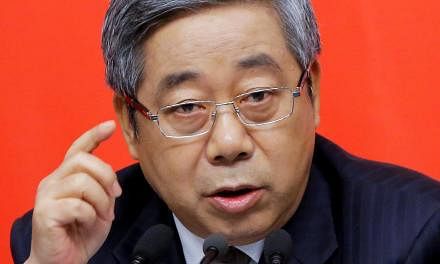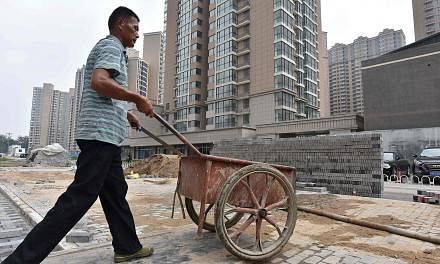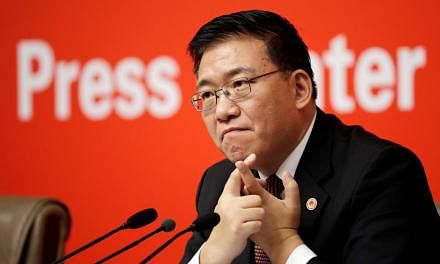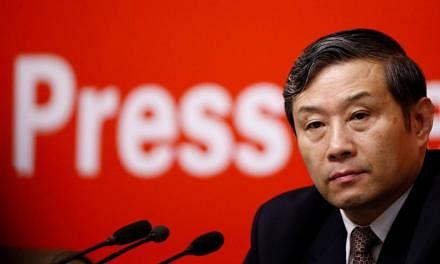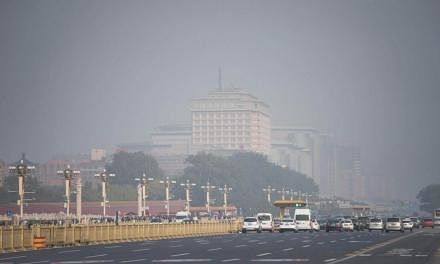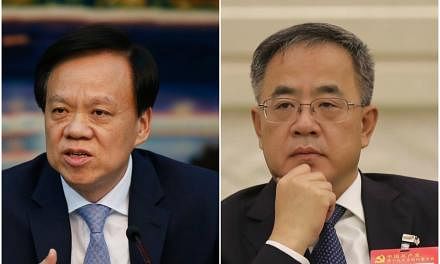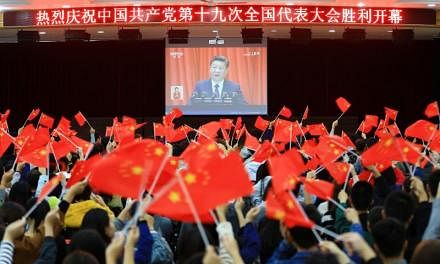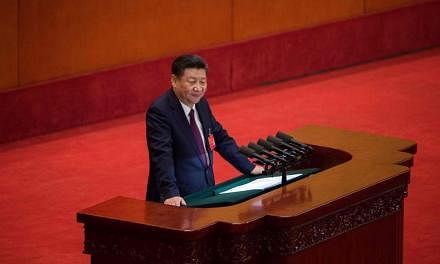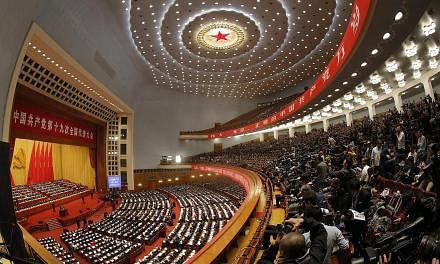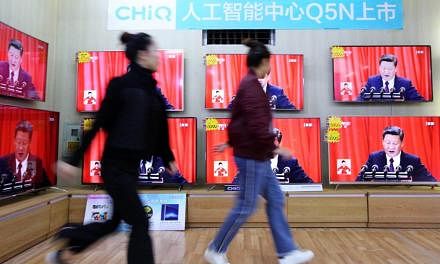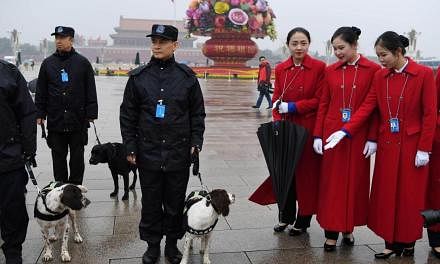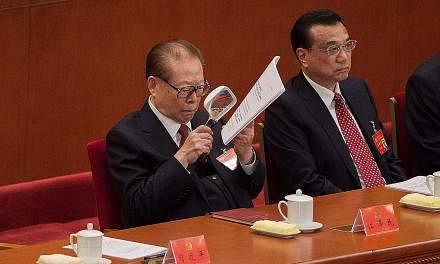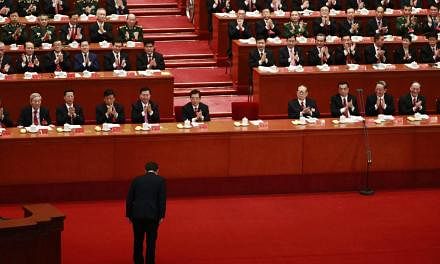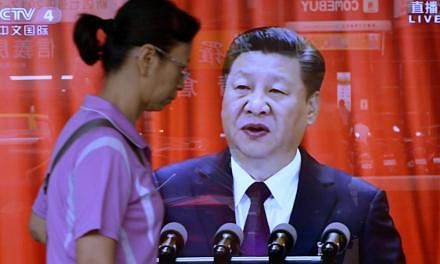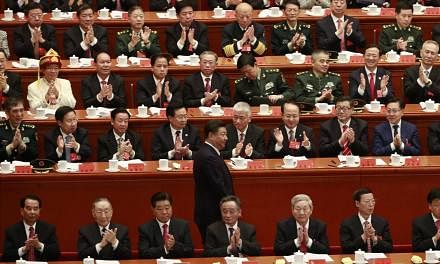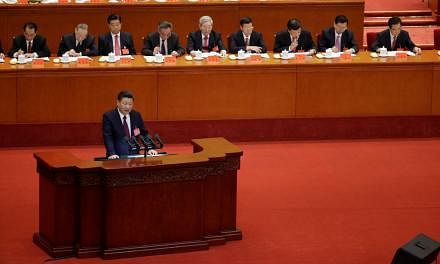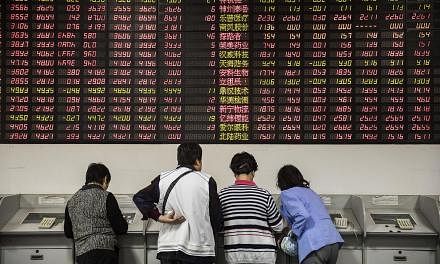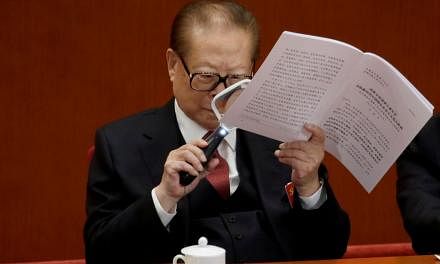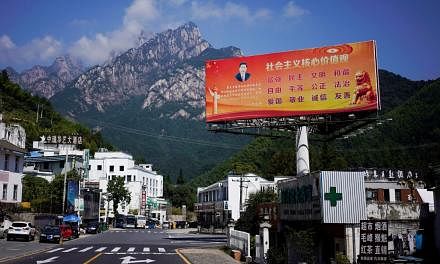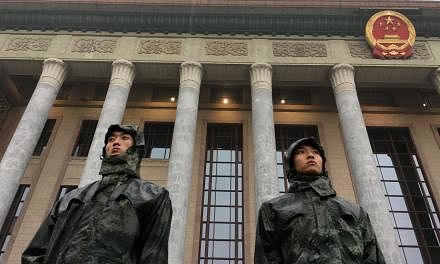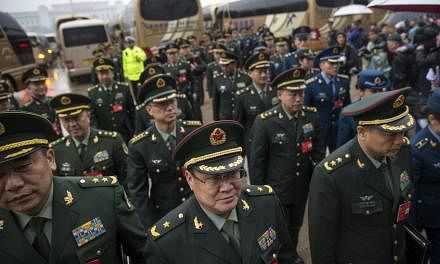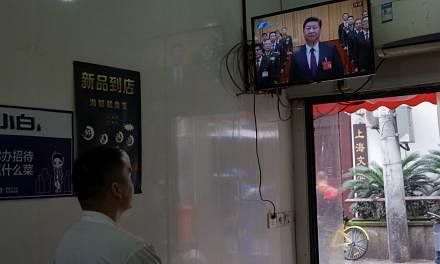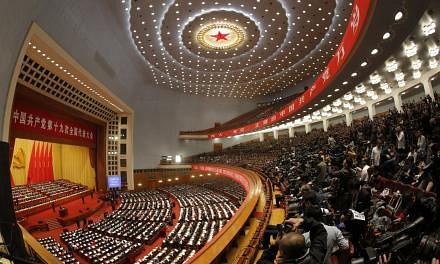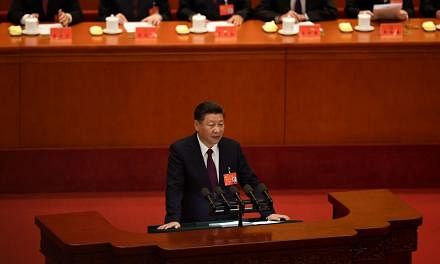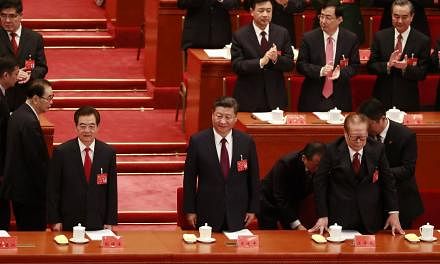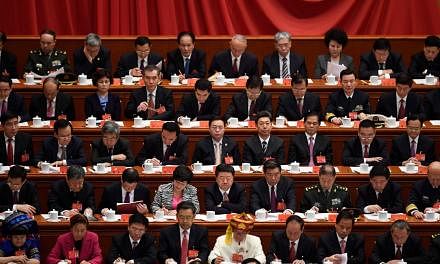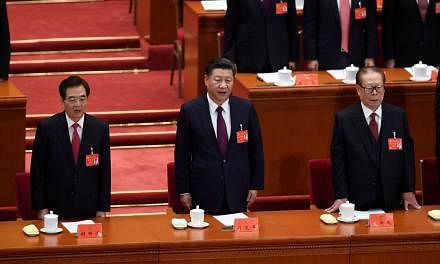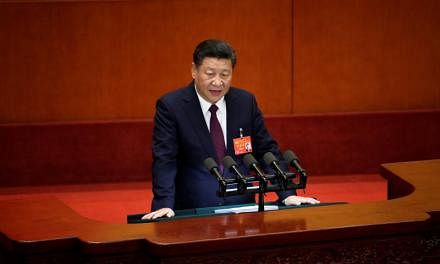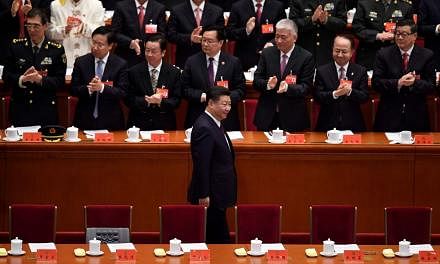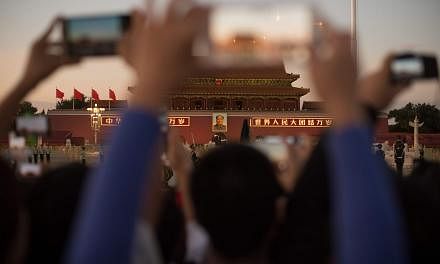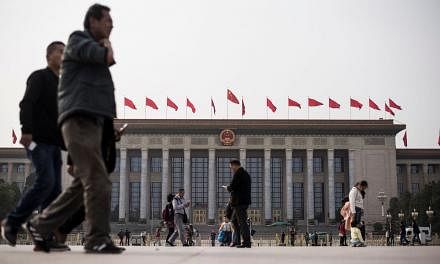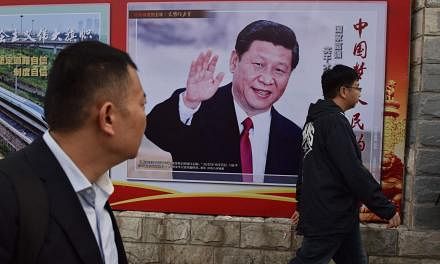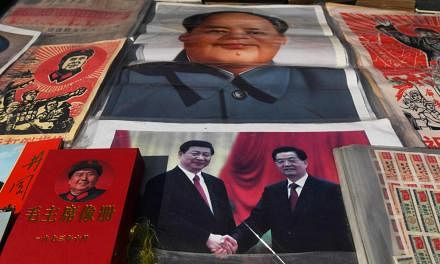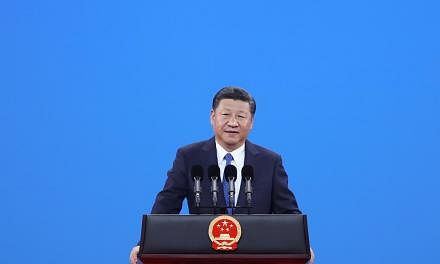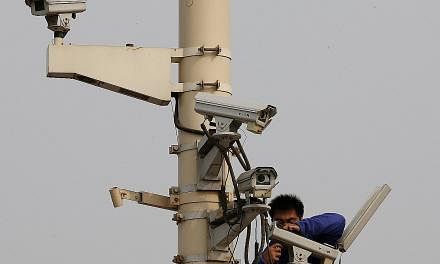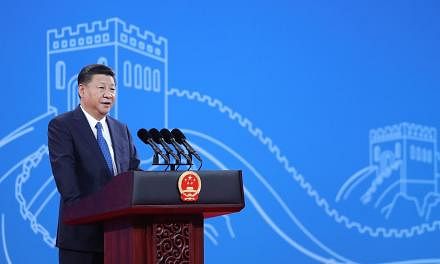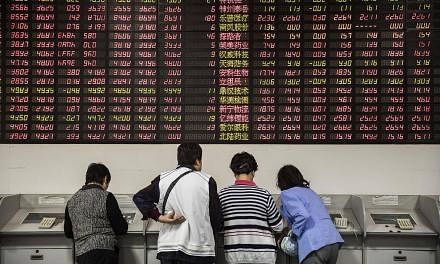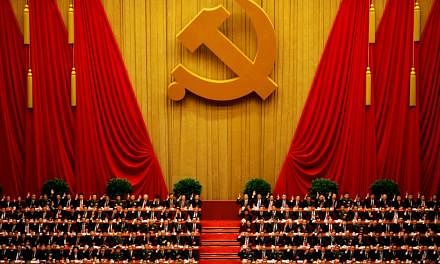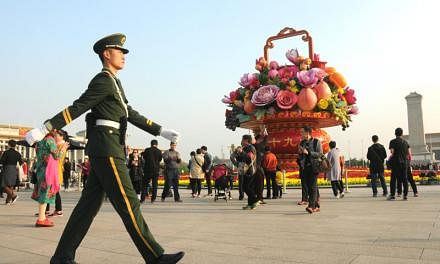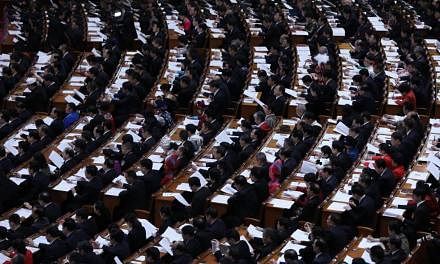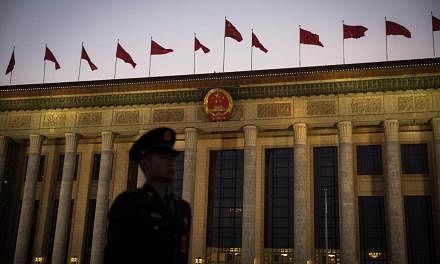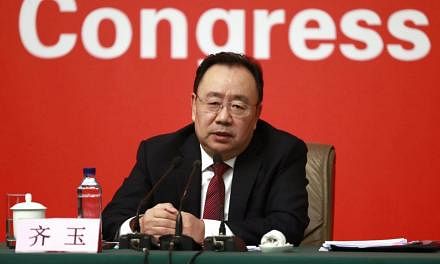The Chinese economy stayed relatively under the radar of President Xi Jinping in the past five years as he focused on fighting corruption, reforming the military and consolidating power.
Some say he is not interested in the economy, but many more are of the view that he needed to amass more power first in order to push through painful reforms that ensure better-quality, more sustainable growth.
Since 2012, the world's No. 2 economy has been slowing steadily. Last year, growth dipped to 6.7 per cent, the slowest expansion in 26 years.
Mr Xi described it in 2014 as the "new normal", characterised by slower but steadier growth that is driven mainly by consumption instead of investments and exports.
In the first half of this year, consumption accounted for 63.4 per cent of gross domestic product (GDP) growth, up from 51.8 per cent in 2012.
There has also been a shift from manufacturing to services.
The service sector's share of the GDP rose to 54.1 per cent in the first half of this year, up from 45.3 per cent in 2012.
-
'NEW NORMAL' ECONOMY: 2013-2016
7.2% Average annual economic growth.
13m Number of new urban jobs created each year.
5% Surveyed urban unemployment rate.
SHOWING GROWTH
• Consumption accounted for 55 per cent of GDP growth annually.
• Service sector's share of GDP rose to 51.6 per cent in 2016 from 45.3 per cent in 2012.
• Disposable income growth of 7.4 per cent annually.
In looking for new growth drivers, Mr Xi unveiled in 2013 an ambitious plan to revive two ancient trading routes on land and sea.
These will link China to other parts of Asia, the Middle East, Africa and Europe through a series of roads, railways, ports and industrial parks.
Known as the Belt and Road Initiative (BRI), it is a way for China to export its overcapacity, build internationally competitive Chinese companies and stimulate growth in its western provinces.
Analysts say Mr Xi has done a fairly good job of balancing the conflicting demands of maintaining social stability, growing the economy and pushing for reforms in his first five-year term.
A good indicator is the number of jobs created in the past five years.
Despite slowing growth, 13 million new jobs were created each year from 2013 to 2016, surpassing the official target by 30 per cent.
"The reason why we develop the economy and promote productivity is to increase jobs, increase income, improve consumption and improve welfare. So, employment is the most important indicator (of the economy)," Mr Ning Jizhe, a senior economic official, said at a media briefing yesterday.
According to UOB senior economist Suan Teck Kin, as the Chinese economy matures, it has "to start doing other things or keep doing the same things differently".
And that means reforms.
Under Mr Xi, the government has taken steps to reduce overcapacity in steel and coal production, rein in runaway housing prices in major cities and tackle the ballooning debt problem.
But he has found it hard to push these economic policies due to resistance on the ground.
This is not without reason, as local governments get only about half of the fiscal revenue, while having to pay for more than 80 per cent of the spending.
"By now, most analysts have finally agreed that the most pressing issue is for China to address the debt problem," said finance professor Michael Pettis of Peking University.
According to the Bank for International Settlements, China's overall leverage ratio stands at 257.8 per cent of GDP at the end of the first quarter this year.
Such high levels of debt, which are mostly concentrated in state-owned enterprises, could trigger an economic crisis and crash the economy, observers warned.
"No country has grown itself out of a debt problem. China needs to deleverage or suffer a long period of much slower growth," said Professor Pettis, who believes the government has the means to avoid a crisis.
With the success of the anti-corruption campaign that has helped weed out uncooperative officials and placed authority firmly in Mr Xi's hands, analysts expect him to focus more on fixing the economy in his second five-year term.
This could mean settling for even slower growth in order to push bolder moves to contain housing bubbles and reduce high debt levels.
Analysts say that given the current pace of economic expansion, Mr Xi has room to let growth slide to 6.3 per cent for the next three years and still achieve his target of doubling 2010's GDP and per capita income by 2020.
Externally, Mr Xi will ramp up his signature BRI, which has gained some momentum this year after the inaugural BRI forum.
This could also pave the way for more liberalisation measures for the Chinese currency, putting the yuan back on track along the path of internationalisation.

